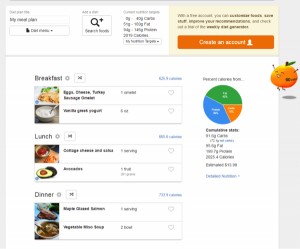Choosing a WordPress theme is one of the most important steps when building your website. Should you go with a free theme or paid?
WordPress is one of the best ways of ensuring you have a great website that is easy to use, customizable, and manageable. With both paid and free options, these websites come in a variety of unique styles, featuring a range of add-ons and plugins that can help make your website better.
Whether you want to keep it simple and sleek or advanced with many high-end features, you can find the right WordPress theme for you. It just takes some searching.
When setting up your own blog, don’t just pick the one you think is most relevent to your niche. You want to choose a website that will work well with your content and goals for the web page.
The more advanced your website gets, the more complex it will be to run and manage. Developing your pages will be simple with some of the free themes. It will get more and more complex to create and manage as you add more advanced features.
Developing your pages will be simple with some of the free themes. It will get more and more complex to create and manage as you add more advanced features.
Free vs. Paid Themes
One of the major differences between WordPress themes is whether you get a paid or free theme.

There are major differences between them, and depending on what you want out of your website you will want to choose a more advanced or more basic theme when starting a blog. If you need a more advanced page with more features and differentiation, you may want to choose a paid theme.
Typically, paid themes offer more customization and freedom, helping to separate your page from the others. Although paid themes can come with a lot of personalization options, you can customize free themes as well. It might be a little more difficult and need more work, but you can usually do many designs with your WordPress page using a free theme, as well as introduce add-ons and plugins.
If you don’t find any child themes you like, you can always create your own too!
Weighing the Advantages and Disadvantages of Paid
One of the best advantages to having a paid theme on WordPress is that you will get consistent updates. While many free themes are rarely – or never – updated, paid themes are monitored and updated regularly. This ensures that your theme stays relevant, operates well with new updates in technology, and retains functionality.
With a free child theme or one you’ve created on your own, you will not have access to updates to the theme. When using a free theme, you will also usually be required to site the theme’s author at the foot of your page.
With paid themes, you do not ever need to credit the author of the theme.
Another great thing about paid-for themes is that they are more unique and less recognizable in terms of layout and design. Since free themes are more popular and common, more people will have websites that look like this.

By getting a paid theme, you have a much less popularly used web page and will therefore, have a more unique design and layout. This helps differentiate you from the competition!
With paid themes, you also get more support, including tech support and user guide information.
Free themes may not come with anything at all, but many of the paid themes comes with detailed documents outlining how to use them best. This will give you tips on how to best use, customize, and manage your page. These paid themes also come with tech support which normally includes things like a public forum, live chat, and email system.
Although free themes offer more customization options and a more unique layout than more popular themes, this comes at a cost.
While you have more options for configuration, you will still need to get used to all the settings and adjust to use this theme. That will demand some time and effort to get the hang of. Once you do, your site will be more unique than many others and can also provide more freedom to customize.
Paid themes typically also have more available options than other websites, like plugins, more skins, and a portfolio manager. These add features to the theme and give it more flexibility, but this can also bog down your site with extras you don’t need. This could hurt the speed of your web page and its functionality.
If you don’t need a lot of features, it might be best to go with a free theme, avoid all of these unwanted extras, and ensure ease of use and fast website speeds.
What I Use and Why
Right now, I’m using a Genesis Framework through StudioPress, which allows me to download a variety of WordPress themes that work with Genesis.

The Genesis Framework offers solid security, fast website speeds, SEO formatted readability, and mobile-responsive designs. This ensures your on-the-go users can access your content just as smoothly.
The Genesis Framework
By purchasing the Genesis Framework, you can then expand by getting applicable themes, letting you fully customize your website how you’d like it. You will also get access to updates as well as customer support, available through online chat and email-ticket options. You will get a guide that comes with your theme to help you run it properly.
When choosing the right child theme, you will want to make sure you think not only about the styles given, but how that theme works with your overall aims and goals for your website.
You will want to not only match it to your style to make it suit your content, but you will always want to have user experience in the back of your mind.
By ensuring that your website gives visitors the best user experience in terms of layout and navigation, you will ensure people stay on – and revisit – your site.
Ultimately, try to balance the add-ons and plugins you want with the basics: fast speed and simplicity of use.
Digital & Social Articles on Business 2 Community(42)






